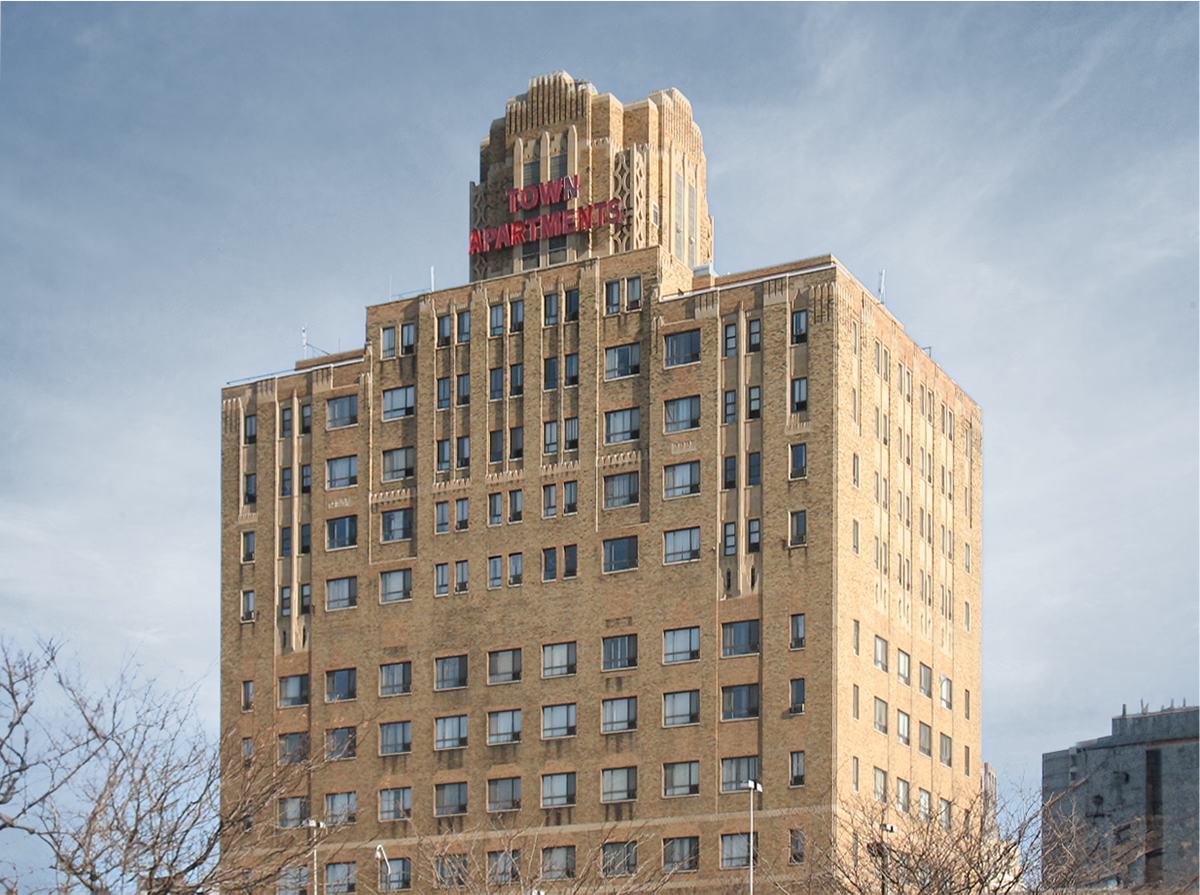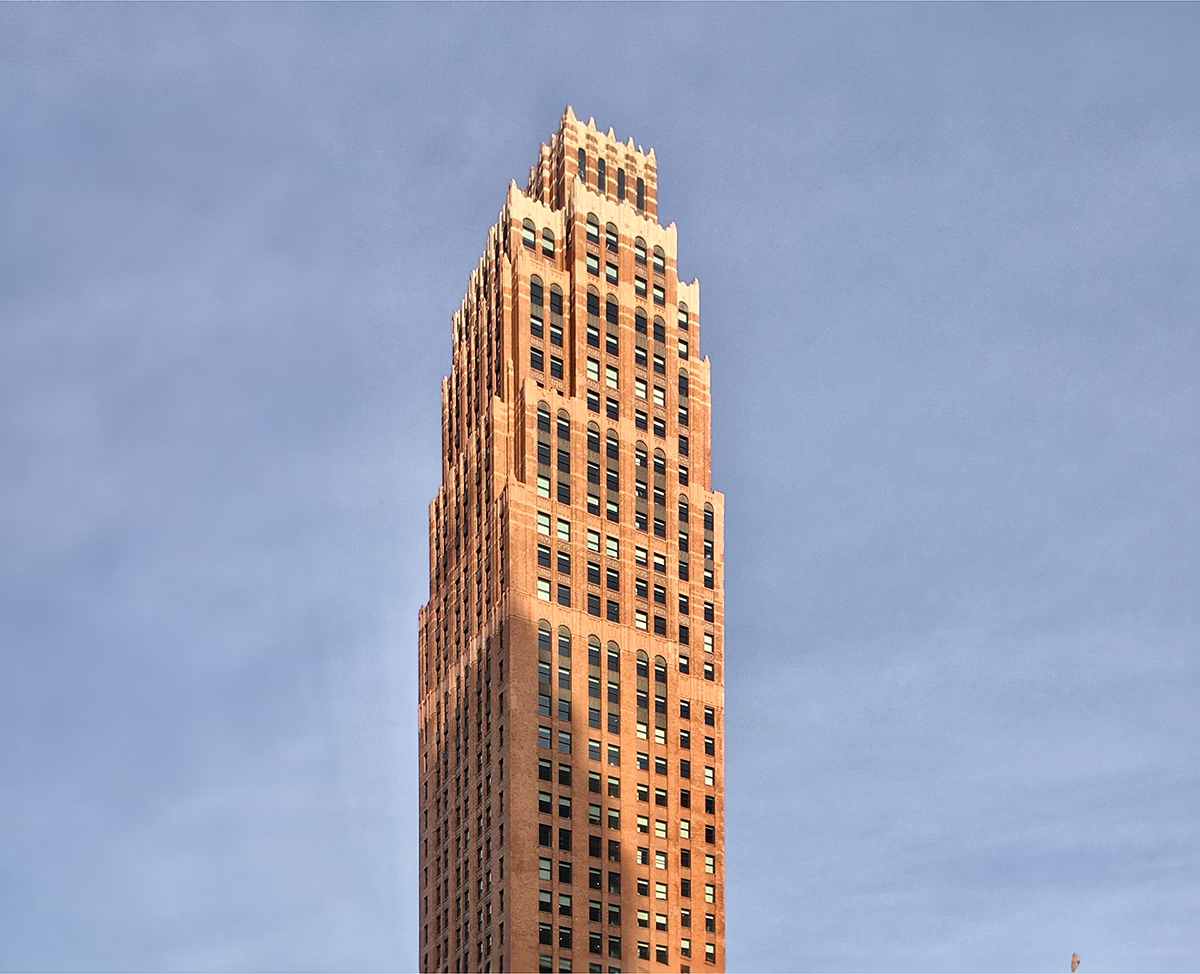Town Apartments vs David Stott Building


Comparing the Town Apartments and the David Stott Building is interesting because they both rise in Detroit, MI, yet they were conceived by two different design teams, Smith, Hinchman & Grylls and Donaldson and Meier, and were completed at different points in time. They were finished over two decades apart.
This contrast within the same city allows us to see how different creative minds interpreted the evolving needs of Detroit across time.
Let's take a closer look!
Height & Size
The David Stott Building is clearly the larger tower of the two, both in terms of height and number of floors. It rises to 436ft (133m) with 38 floors above ground, while the Town Apartments reaches 194ft (59m) with 15 floors above ground.
Of course, each project may have faced different briefs or regulatory constraints, which we don't really know about and could also explain the outcome.
Architectural Style
Both the Town Apartments and the David Stott Building were designed in line with the aesthetic conventions of the Art Deco style.
The Town Apartments was designed at a moment when the Art Deco style was already in decline, making it more of a lingering expression of the movement. In contrast, the David Stott Building style was already in decline, making it more of a lingering expression of the movement. In contrast, the David Stott Building was built when the style still carried greater cultural weight.
Uses
Both the Town Apartments and the David Stott Building are primarily residential towers, serving similar roles in the urban fabric.
Originally, the David Stott Building was designed for commercial, but over time it was converted to residential. The Town Apartments by contrast has maintained its original role.
In terms of capacity, the Town Apartments offers 250 apartments, while the David Stott Building provides 107 units.
The Town Apartments also provides 25 parking spaces.
Structure & Facade
Both the Town Apartments and the David Stott Building rely on a Frame structural system.
A frame structure uses a grid of columns and beams to carry the building's loads. This frees the walls from structural duties, allowing for flexible floor plans and larger windows.
They also employ the same type of facade, a Masonry facade.
A masonry facade gives the building a heavier, more traditional appearance. It often conceals a frame structure behind it, creating the look of solid walls without carrying the main loads.
| Town Apartments | David Stott Building | |
|---|---|---|
| Smith, Hinchman & Grylls | Architect | Donaldson and Meier |
| 1928 | Construction Started | 1928 |
| 1953 | Year Completed | 1929 |
| Art Deco | Architectural Style | Art Deco |
| Residential | Current Use | Residential |
| 15 | Floors Above Ground | 38 |
| 1 | Floors Below Ground | 3 |
| 59 m | Height (m) | 133 m |
| 5 | Number of Elevators | 6 |
| 250 | Residential Units | 107 |
| Frame | Structure Type | Frame |
| Steel | Vertical Structure Material | Steel |
| Concrete | Horizontal Structure Material | Concrete |
| No | Facade Structural? | No |
| Brick, Mankato Stone, Granite | Main Facade Material | Bricks |
| MI | State | MI |
| Detroit | City | Detroit |
| 1511 First Street | Address | 1150 Griswold Street |